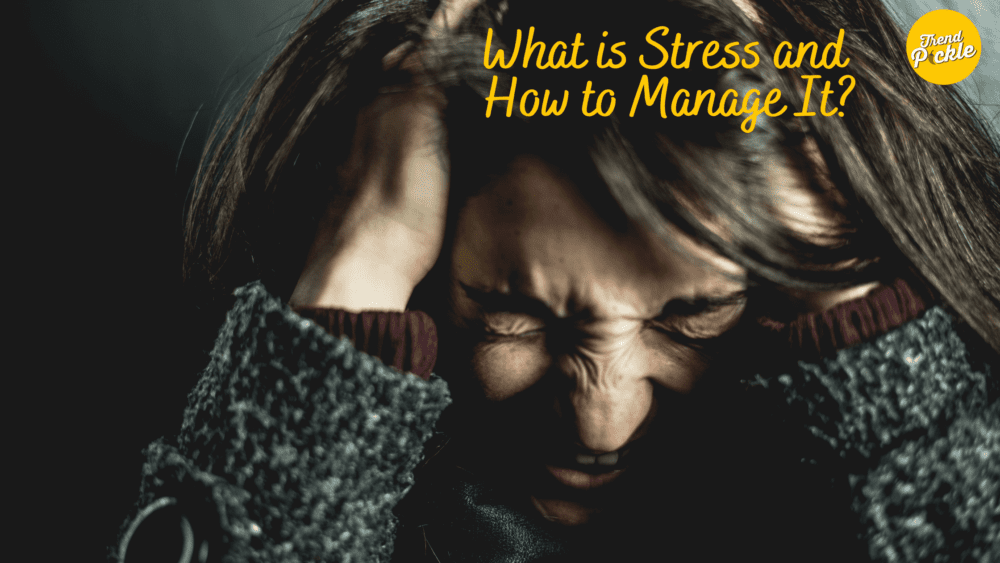Introduction
Stress is an inborn feeling when you are not able to meet the pressures of everyday life. However, anxiety can become an everlasting condition if a person does not take proper steps to address it.
These demands may be from the workplace, relationships with spouse or friends, monetary pressures, and other circumstances. On the whole, any force that creates a real or apparent challenge or risk to a person’s health can cause stress.
Stress can be a stimulus and is sometimes necessary for survival. The body’s defense mechanism automatically adjusts when and how to react to danger. However, there are times when little events of no importance cause stress in a person.
There is a situation when a person comes under pressure from many sides, causing too much stress. All this can weaken a person’s mental and physical health and lead to harmful stress.
What is Stress?
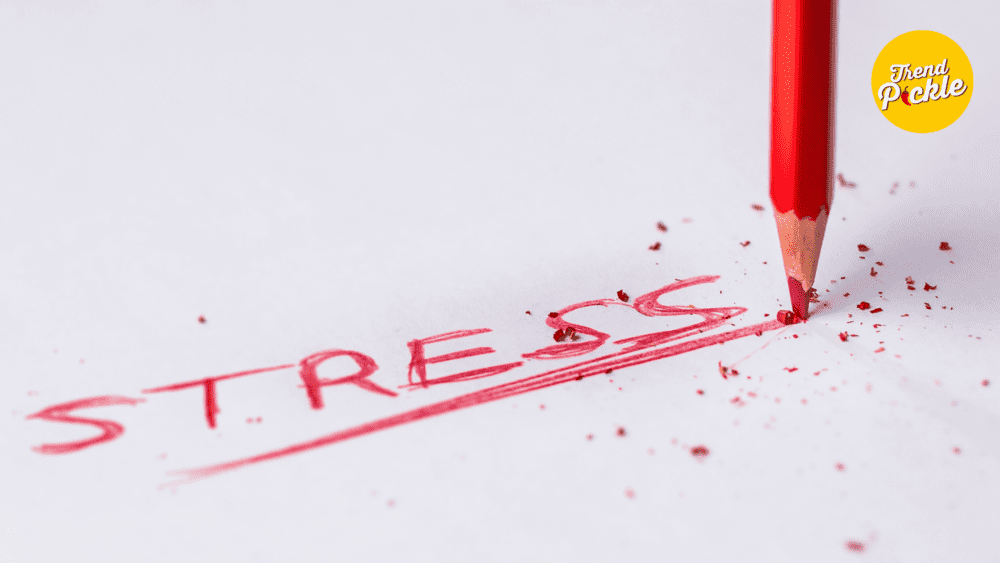
When the body meets a pressure like work overload, a lousy relationship, or any other such situation. The body’s defense mechanism reacts by releasing chemicals that cause stress. The body tries to avoid or tackle the danger.
When humans face danger or threat, they first give a physical response. The body activates and alerts itself to face the risk or move to safety as quickly as possible.
- Body’s Physical Response
- High Blood Pressure
- Tense Muscles
- Sweaty hands
- Readiness
Environmental things that excite this reaction are called stressors. Examples include loud noises, aggressive behavior, a fast-moving car, scary movies, or even going out to meet a date. When a person is under stress, the body slows down. Like, its digestive and immune system.
The Body Function Changes During a Stress Reaction:

- Pulse rise
- Breathing heavily
- The digestive system slows down
- Immunity decreases
- Muscles become tighter
- No or less sleep due to a state of caution
Reaction to the tense situation establishes the effect of stress on general health. Some people are strong and confident. They can face several stressors at the same time, and there is no severe reaction.
Some people bog out by a single stressor. Moreover, it all depends on the person’s ability to cope. If he is weak and does not have enough resources, he will react severely, which may cause a health problem.
Change Causes Stress
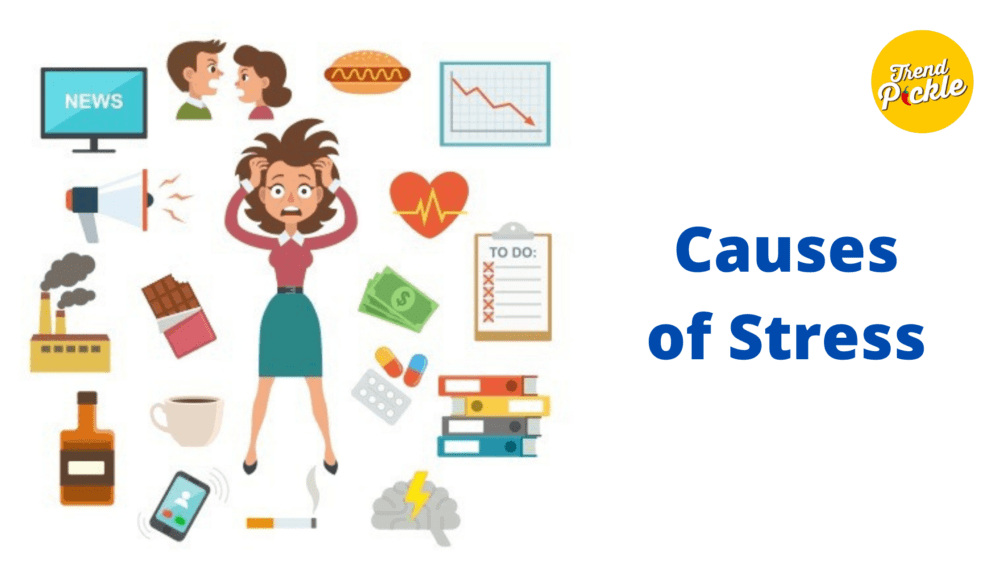
Change can lead to stress. Even positive changes can cause stress, such as having a baby, buying a new house, or getting a promotion. Reason for the cause of stress is new responsibilities, adapting to a new location, and an extra effort. But as the person settles down and gets a hold of himself, the pressure decreases.
Likewise, a person looking forward to an increase in salary after promotion may get afraid of the extra responsibilities—moreover, adverse responses to positive changes, harm health, and joy.
The most common stressors are work-related and monetary hardships. However, being more cautious and alert to the consequences of stress may help a person deal with it more effectively and handle it better.
Types of Stresses
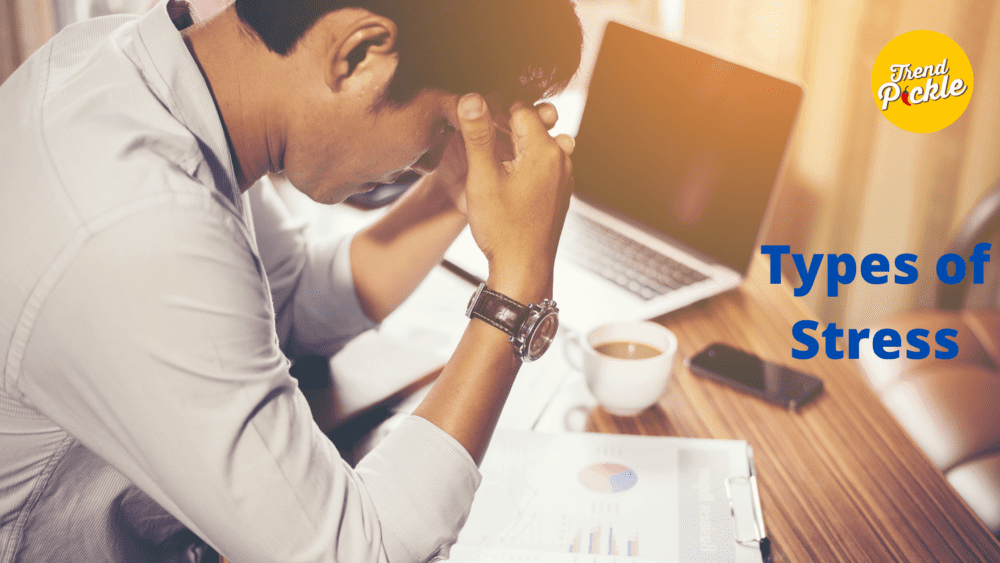
Acute stress
This type of stress is short-lived and the more occurring form of stress. Acute stress typically develops when people consider the pressures of recent events—also stress increases due to upcoming challenges.
For example, a person may get stressed about a quarrel or assignment deadline. However, the stress will disappear once a person solves the quarrel issues or completes work before the deadline.
Acute stressors often come and go, as there is a solution for it. Acute stress does not cause a lot of damage as compared to long-term, chronic stress. Physical effects show tension, headaches, and an unsettled stomach, as well as a little amount of pain. However, constant cases of acute stress over a long period can turn chronic and dreadful.
Chronic Stress
This type of stress lasts over a long time and is more harmful.
Poverty, a broken family, or an unhappy marriage are examples of situations that can lead to chronic stress. Moreover, when a person is hopeless and seeks no solutions. A shocking childhood experience may also cause chronic stress. In Chronic stress, the body does not return to an average level of stress hormone activity, which may cause the following problem
- Cardio
- Breathing
- Sleep
- Immune system
- Infertility
Never-ending stress can also increase the danger of type 2 diabetes, high blood pressure, and heart disease. Mental health disorders can occur if stress becomes chronic. People can get used to feeling restless and hopeless.
It can become part of their personality. People with chronic stress can suffer a nervous breakdown. Subsequently, it can lead to suicide, violent actions, a heart attack, or stroke.
Causes

Every day major life events that can cause stress include:
- Job-related issues or retirement
- Monetary Problems
- Bereavement
- Family issues
- Ailment
- Relocation
- Marriage and divorce issues
Other commonly stated causes of stress are:
- Abortion or pregnancy loss
- Heavy traffic jams or fear of an accident
- Fear of crime or issues with neighbors
- No pregnancy
- Excessive noise, overcrowding, and pollution
- Uncertainty or waiting for a meaningful outcome
- A disturbing event, such as an accident or childhood abuse.
Stress Management
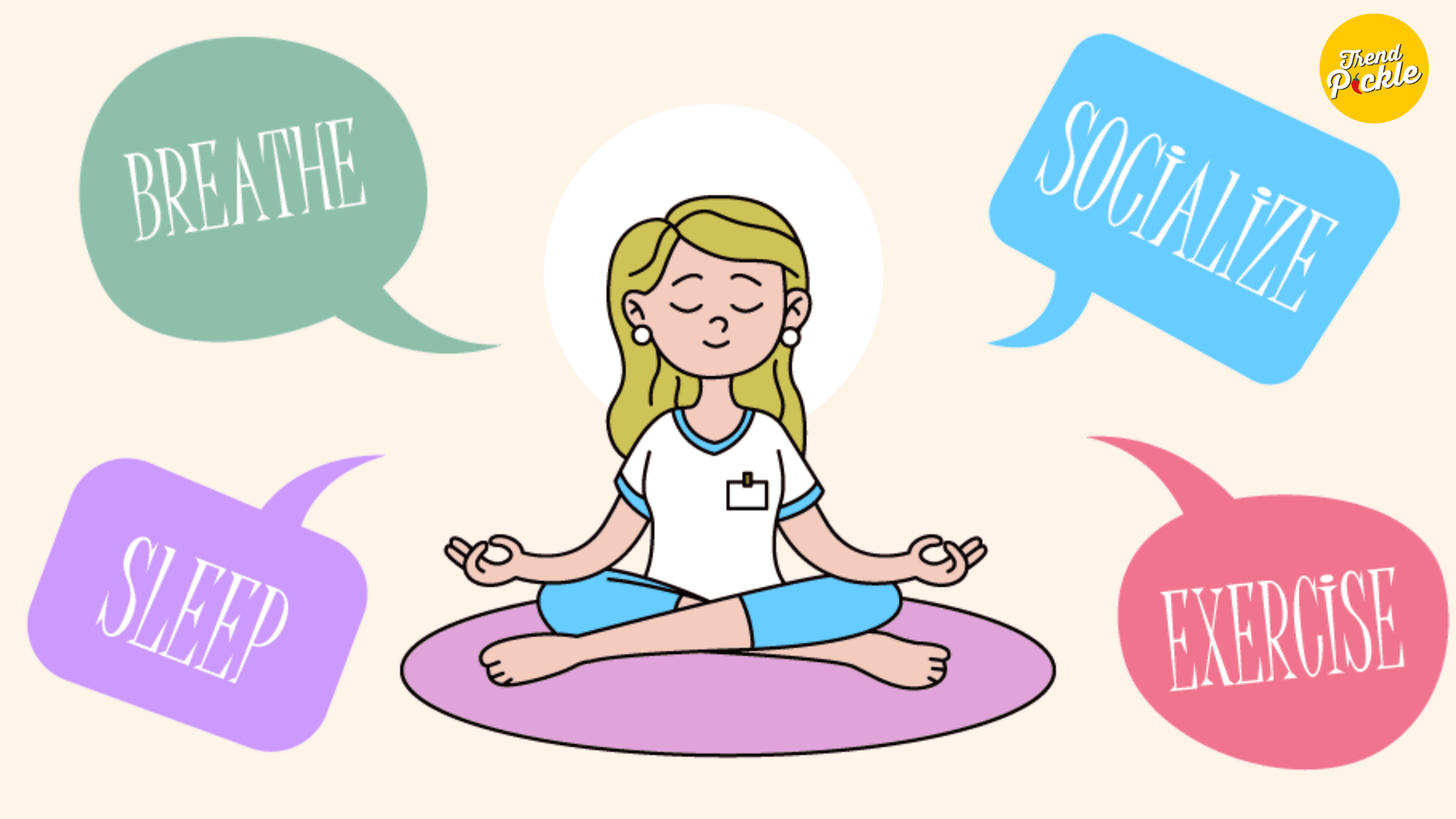
Sport Activity and Exercise
Sports activity is the best distraction to avoid stress. Constant thinking about the worries may lead to depression. Exercise and physical movement make you agile and energetic. Also, all sports create social interaction.
The best approach to get out of stress is sports and exercise activity with friends and family. Likewise, organizing a weekend get together. Also, having a barbeque picnic will boost your mood. Moreover, it will distract your attention from all the worries. Try to arrange such events frequently.
Friends and family can be very supportive in times of stress. Always talk to them about your fears and worries. Discussing solves half the problem. In fact, don’t keep your concerns to yourself only; talk it out. Kratom legality is certain in some states.
Busy Yourself
Stress can be dangerous. If you neglect or ignore it, it can lead to depression. Empty your mind from negative thoughts. Also, try to stay away from a stressful environment. Engage in some leisure activities.
Such as gardening and carpentering. Activity which you enjoy and love doing. Creating something new will give you a sense of achievement. Above all, a high mood will boost your overall attitude.
Light Exercise
Walking is the best exercise to boost your energy level. Short walks can do miracles. Begin with a slow tempo, and when you start feeling better, increase the timing. Undoubtedly, an early morning walk in the fresh air will make you forget the worries and take you toward positivity. Try going on a walk with a friend, and physical activity will become a joyful event. White horn kratom has mood-boosting properties and makes you energetic.
Drink Water
Doctors suggest taking at least 3 to 4 liters of liquid every day. Water detoxifies your body. It brings down the stress level. Develop the habit of water drinking by carrying a water bottle in your back bag. Drinking water has many benefits. It lowers your blood pressure and sharpens your memory. Overall, water is right for your health.
Conclusion
Fighting stress can be easy if you stay alert. Get the support of friends and family. Indeed, social interaction will make you forget the worries, and soon you will be out of stress.
Listening to music, reading are all activities that will help you in your struggle. Eat a healthy balanced diet, fresh vegetables, lean meat, and no junk food. Fighting stress can be easy if you have the right approach. Friends and family to guide you.

